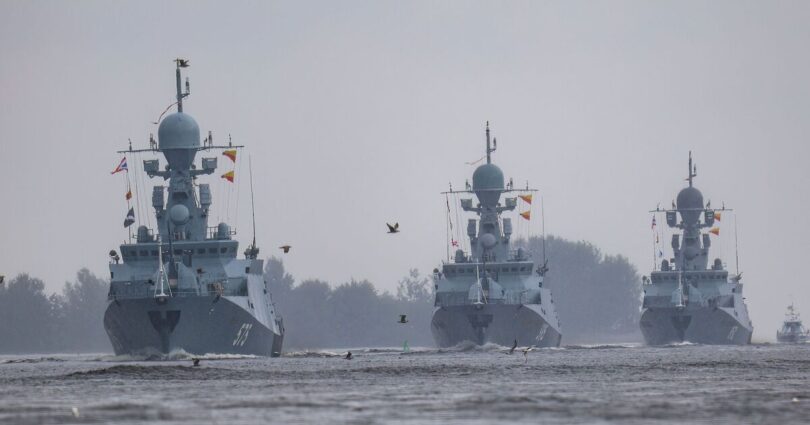Fears of escalation in tensions between the East and West have skyrocketed as the shallow waters of the Baltic Sea become crucial in the standoff.
The narrow stretch of water has become increasingly important as hybrid warfare activities increase and NATO strengthens its eastern flank.
Both sides have key vulnerabilities but appear to be taking the threat of hybrid warfare seriously.
Recently, two undersea cables connecting Germany to Finland and Lithuania to Sweden were severed in a suspected sbotage by a Chinese-flagged ship.
In the wake of this incident, German Defence Minister Boris Pistorious said: « No one believes that these cables were cut accidentally … We have to assume … It is sabotage. »
The severed cables alerted the attention of several countries around the Baltic Sea, including Denmark, Sweden and Germany.
They sent ships to approach the Chinese vessel suspected of cutting the cables as it made its way to the Atlantic, discovering damage consistent with dragging its anchor across the sea floor to cause damage.
The altercation between the ships stopped near Danish waters and was supervised by armed European ships.
This incident was not the first time a Chinese ship dragged its anchor across undersea cables connection NATO allies. In October of last year, a gas pipeline and data cables were severed in this way by the Newnew Polar Bear.
One year previous, Nord Stream gas pipelines connecting Russia to Germany exploded, making them unusable. Though it’s still unclear who was responsible, Germany has issued an arrest warrant for a Ukrainian man.
This comes alongside Finland and Sweden’s acceptance into NATO, causing the Baltic Sea to now be dubbed the « NATO lake » much to the dismay of Russia, who went from controling half of the coastline to only 430 miles.
The section Russia still controls is incredibly important from a military standpoint, stretching around St Petersburg and Kaliningrad between Lithuania and Poland.
The headquarters of the Baltic fleet is located in Kaliningrad, also Russia‘s only year-round ice-free port in the area, and St Petersberg is a vital financial centre, playing an important role in foreign trade.
States on the Baltic coast continue to utilise the sea as a crucial hub of trade, making the impact of any future sabotage in the NATO lake all the more damaging.
Source link








